By China Biodiversity Conservation and Green Development Foundation (CBCGDF) Pangolins Working Group
- CBCGDF Pangolins Investigation Team
April 2019
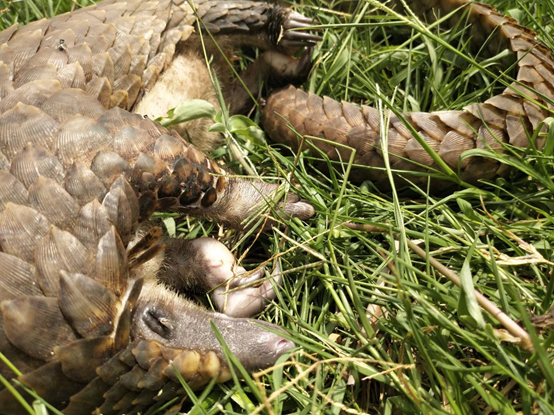
(Photo credit: CBCGDF undercover investigating volunteer “African Warrior” from Lagos, Nigeria)
Summary
Pangolin is the mammal in the world suffers the most severely from illegal trade. The huge market demand and high profits brought about by the so-called "edible and medicinal value" are the catalysts that cause smugglers to take risks and are the boosters that lead pangolins to extinction.
Relevant data show that between 2017 and 2019, in several major cases involving the smuggling of pangolin scales, the seized pangolin scales were from Nigeria. The problem of illegal trade in pangolins in Nigeria does require worldwide attention; how to solve this problem also needs to be highly valued by the international community.
In March 2019, the Pangolin Working Group of the China Biodiversity Conservation and Green Development Foundation (CBCGDF) urgently established the Pangolin Investigation Team in Nigeria, and then sent the CBCGDF’s investigating volunteer “African Warrior” to Nigeria to investigate the consumption of pangolins.
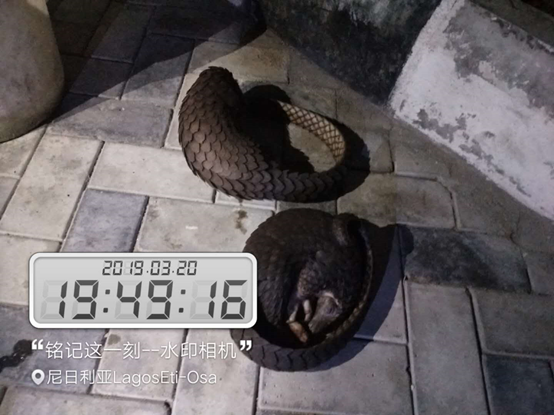
(Photo credit: CBCGDF undercover investigating volunteer “African Warrior” from Lagos, Nigeria)
I. Why investigates Nigeria?
There are four species of pangolins in Africa: black-bellied long-tailed pangolins, white-bellied long-tailed pangolins, giant pangolins, and South African pangolins. Both giant pangolins and South African pangolins are not distributed in Nigeria. The black-bellied long tailed pangolins are distributed in southeastern Nigeria. They are found in primary and secondary rainforests, artificial foreests (shrubs), swamps and farmland. The long-tailed pangolins mainly inhabit in the lowland tropical humid forests of Nigeria, the area between forests and savannah grasslands, and in areas where there are no hunts, and may also live in arable land and fallow land.
The above two species of pangolins are captured locally in Nigeria, consumed or traded in the market, and their scales are used for medicine, including traditional African western medicine, resulting in a sharp decline in the number of pangolins.
China continue to be persistent hotspot for seizures of pangolin scales, recording 55.8 tons of seized scales respectively between 2014-2018. According to several media reports, the amount of smuggled pangolin scales seized by China from 2016 to 2019 is on the rise, many of which were from Nigeria.
(see details:
https://www.maritime-executive.com/article/over-seven-tons-of-pangolin-scales-seized-in-hong-kong
https://clubofmozambique.com/news/shipped-nigeria-china-biggest-ever-pangolin-scale-seizure-reports/
https://wildaid.org/world-pangolin-day-comes-amid-alarming-number-of-seizures/
https://www.sciencedirect.com/science/article/pii/S2351989418304414
http://qbzx.forestpolice.net/2019/0202/c1204a77382/pagem.htm
, etc.)
Collation – Typical cases involving seizures of smuggling pangolins in Nigeria:
On January 16, 2018, the Customs of Hong Kong and the Customs of the Mainland carried out joint operations and seized 8,300 kilograms (about 13,000 pangolins), which was shown to be from Nigeria;
(see details: https://ewn.co.za/2019/02/01/hong-kong-seizes-record-eight-tons-of-pangolin-scales)
On February 16, 2018, Nigerian Customs operatives seized 55 sacks of pangolin scales weighing 2,001kg, valued at N408.32 million, and 218 pieces of elephant tusks weighing 343kg and valued at 85.2 million at a warehouse in Ikeja, Lagos, South West Nigeria, arresting a Chinese suspect, Ko Sin Ying.
(see details: https://businessday.ng/businessday-investigation/article/pangolins-vanishing-in-the-wild-2/)
On March 15, 2018, in the case of the seizure of smuggling pangolin scales in Ikeja, Nigeria, 329 bags of pangolin scales were found in an apartment of a Chinese, weighing 8.4 tons and worth 1.72 billion naira (about 33 million yuan);
(see details: https://www.pulse.com.gh/bi/politics/politics-nigerians-are-helping-chinese-nationals-traffic-an-endangered-species/vg6b56p)
On July 20, 2018, the Customs of Hong Kong seized about 7,100 kilograms of pangolin scales in a cargo container, equivalent to 11,000 pangolins, worth 3.55 million, which was shown from Nigeria;
(see details: http://www.xinhuanet.com/english/2018-07/20/c_137338114.htm)
On August 9, 2018, 21 bags of pangolin scales weighing 1031 kilograms were seized in a store in Lagos, Nigeria.
(see details: https://www.von.gov.ng/nigeria-customs-impound-various-contraband-goods/)
On September 26, 2018, the customs of Guangzhou cracked a large smuggling case of pangolin scales. The scales weighed 7.26 tons, and it was estimated that more than 10,000 pangolins were killed.
(see details: https://www.scmp.com/news/china/society/article/2166083/15000-pangolins-slaughtered-7-tonnes-scales-seized-china)
On September 28, 2018, Vietnamese customs seized 805kg of pangolin scales;
(see details: https://www.straitstimes.com/asia/se-asia/nearly-a-ton-of-pangolin-scales-ivory-seized-in-vietnam-which-has-banned-the-trading-of)
On January 16, 2019, the customs of Hong Kong and mainland took a joint action against cross-border smuggling of endangered species and seized about 8,300 kilograms of pangolin scales;
(see details: http://www.china.org.cn/china/2019-02/01/content_74434017.htm)
On April 8, 2019, Singapore intercepted 12.9 tons of pangolin scales;
On April 10, 2019, Singapore intercepted the second batch of pangolin scales in less than a week. These scales weighed 12.7 tons, from about 21,000 pangolins, worth about 255 million yuan, also from Nigeria, planned to ship to Vietnam.
(see details: https://af.reuters.com/article/nigeriaNews/idAFL3N21S1UL)
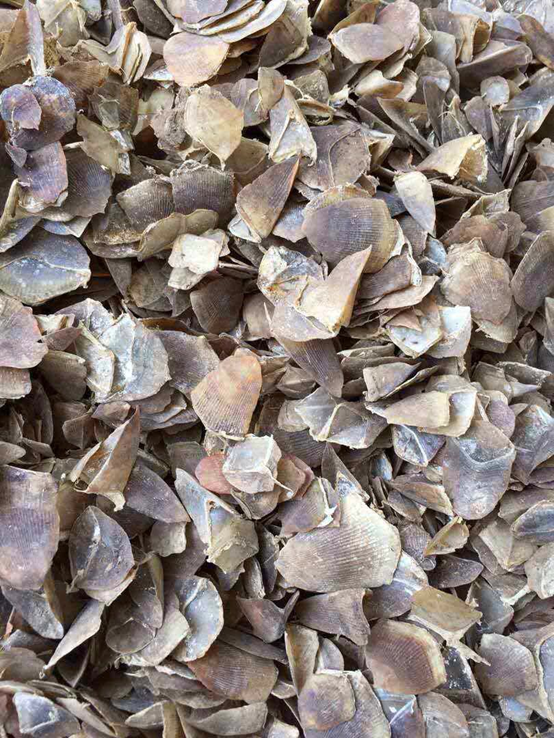
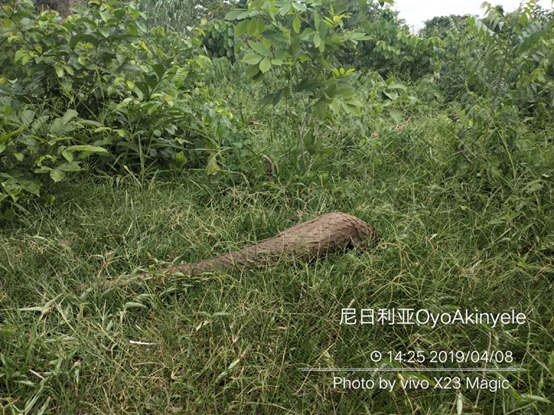
(Photos credit: CBCGDF undercover investigating volunteer “African Warrior” from Lagos, Nigeria)
II. Analysis of Causes
1. A serious lack of awareness of protecting wildlife.
In Nigeria, there is a lack of awareness about the protection of pangolins and other endangered wildlife. For example, in public places such as airports and hotels, there is almost no advocating signs/billboards for publicity on wildlife protection, reminding people from all over the world including Chinese who travel and work in Nigeria to protect pangolins.
(According to the narration of the CBCGDF investigating volunteer “African Warrior”.)
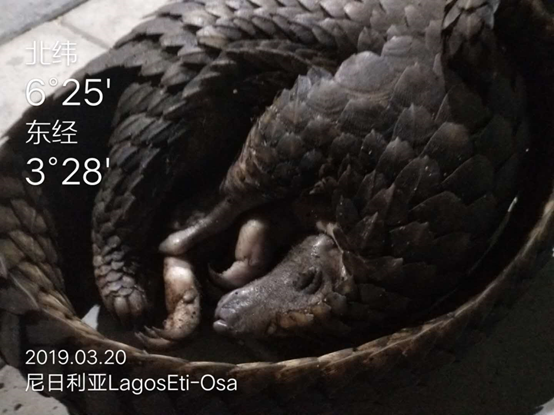
(Photo credit: CBCGDF undercover investigating volunteer “African Warrior” from Lagos, Nigeria)
2. Chinese working in Nigeria see pangolin as a precious tonic.
Local health care in Nigeria is limited. The Chinese who work in the area use pangolin as a supplement to improve immunity. They believe that pangolin has precious medicinal value. They go to the market every week and make the purchased pangolins a nourishing nutrient soup; most of the pangolins captured by local Nigerians are sold to the Chinese. It can be seen that the local situation in which Chinese people eat wild animals is very common.
(According to the narration of “African Warrior”.)
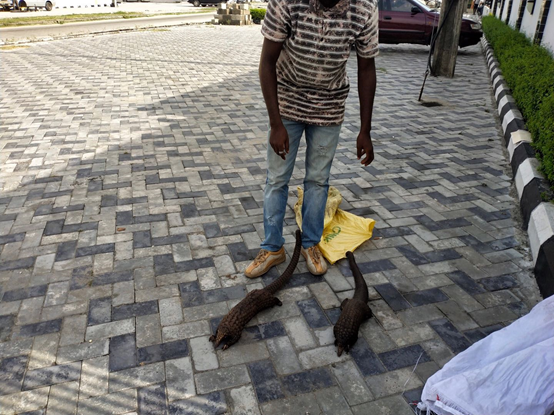
(Photo credit: CBCGDF undercover investigating volunteer “African Warrior” from Lagos, Nigeria)
3. Law enforcement departments lack effective supervision.
Although Nigeria has clear legal provisions on the protection of wild animals, it isn’t really implemented. The relevant law enforcement departments are ineffective, and they have not taken drastic actions against illegal trade, consumption and killing of endangered wild animals. For example, a law enforcement officer stood at the gate of the wildlife meat market but turned a blind eye to the public sale of various wild animals.
(According to the narration of “African Warrior”.)
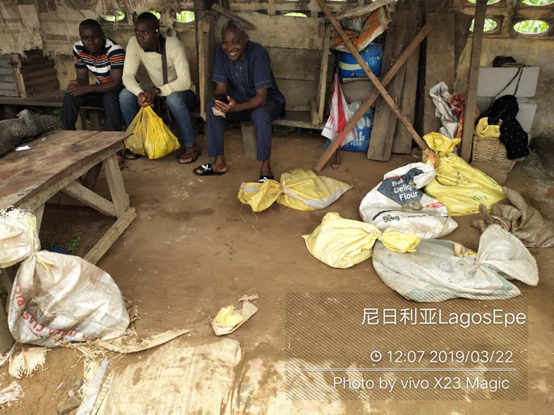
(Photos credit: CBCGDF undercover investigating volunteer “African Warrior” from Lagos, Nigeria)
4. The price is very cheap, resulting in huge interest in smuggling.
The price of pangolins in Nigeria is about 300 yuan, and the pangolin scales are 190 yuan a kilogram (10,000 naira), which is 95 yuan for one jin, the price is very cheap. In Guangxi Zhuang Autonomous Region, China, some people publicly sell pangolins online, “1500 yuan for one jin of live pangolins”, and for the pangolins that will not stay overnight after being captured, the highest can actually sell 90,000 yuan. After comparison, it was found that the pangolins were sold at a price nearly 16 times higher, and the profit was considerable. Locals in Nigeria can provide pangolin scales from 200 kg to 500 kg a month. Customs in some cities in Nigeria are not strictly enforced, so some Chinese can easily smuggle pangolin scales to China for profit.
(According to the narration of “African Warrior”.)
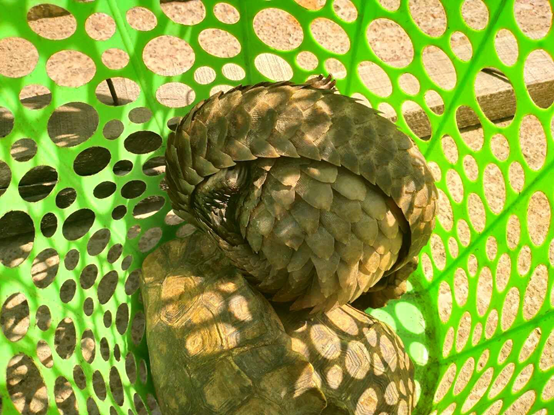
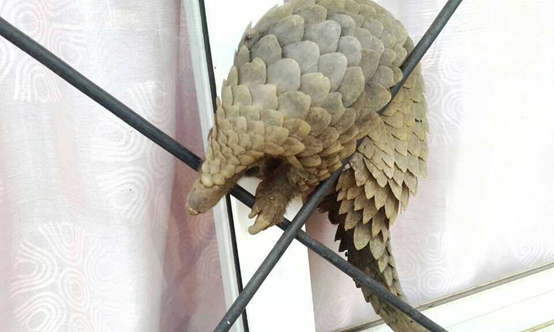
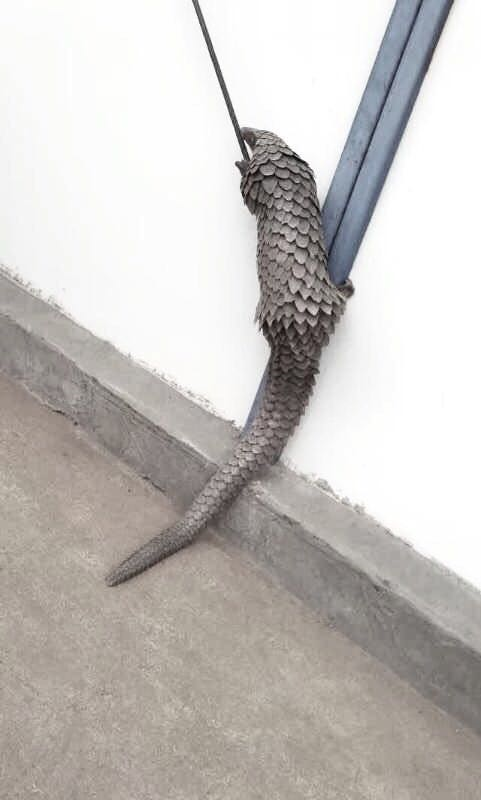
(Photos credit: CBCGDF undercover investigating volunteer “African Warrior” from Lagos, Nigeria)
III. Nigerian Relevant Laws and Regulations.
Nigeria has signed and ratified the Convention on International Trade in Endangered Species of Wild Fauna and Flora (CITES); In 2016, the Convention on International Trade in Endangered Species of Wild Fauna and Flora (CITES) also listed all eight pangolins in the world in Appendix I, on a global scale.
In 1985, Nigeria enacted the 11th Endangered Species (International Trade and Trading) Ordinance; In 2016, Nigeria enacted the Endangered Species Act, which listed the endangered species of pangolins in Appendix I.
(To be continued.)
By / Niu Jingmei
